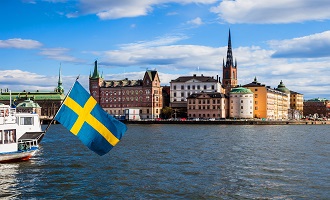
Air transport is a key enabler of economic activity in Sweden.
It supports 192,000 jobs and contributes SEK 164.3 billion (EUR 17.4 billion) to the Swedish economy, which is equivalent to 3.8% of Swedish GDP.
Main Industry Priorities
- Avoid (reduce) existing green taxation
- Change the negative perception of the general public where the industry is perceived as a polluting cash-cow which can be taxed and charged as government see fit
- Prepare for introduction of new and cleaner technologies, such as hybrid and electrical aviation
- Achieve effective ground infrastructure
- Avoid capacity constraints at Arlanda airport [FKA] and ensure sufficient airport capacity in urban regions as well as improved connectivity within the country and to third states (connect Sweden).
- Airspace: ensure efficient and non-discriminatory usage of airspace and ensure that introduction of new technology is properly anchored with the paying industry.
- Improve consultation processes at SWEDAVIA airports according to existing regulation
- Justify the level of airport charges
Other Key Priorities
- Promote global MBM-CORSIA
- Raise the profile of Sustainable Aviation Fuels
Policy Recommendations
- Abolish or reduce the Aviation tax, known as the Environmental tax and promote implementation of the Carbon Offsetting and Reduction Scheme for International Aviation (CORSIA) as a tool to decrease carbon emissions in Sweden
- Promote the avialability of renewable aviation fuels and engage in development of new and cleaner technologies
- Align airport charges process with international best practice in order to ensure efficient consultation and transparent, fair, and cost-related charges
- Ensure that further intrastructure investments, both on the ground and in the air, are cost-efficient and developed in consultation with users.
AIR TRANSPORT COMPETITIVENESS INDICATORS 2019
Read the full report for Sweden (pdf)